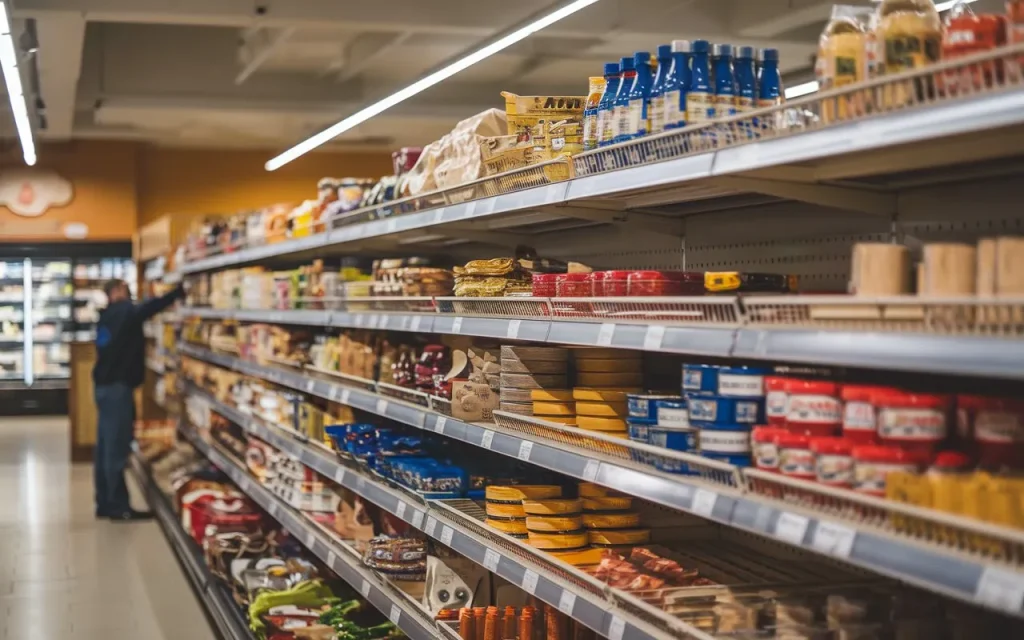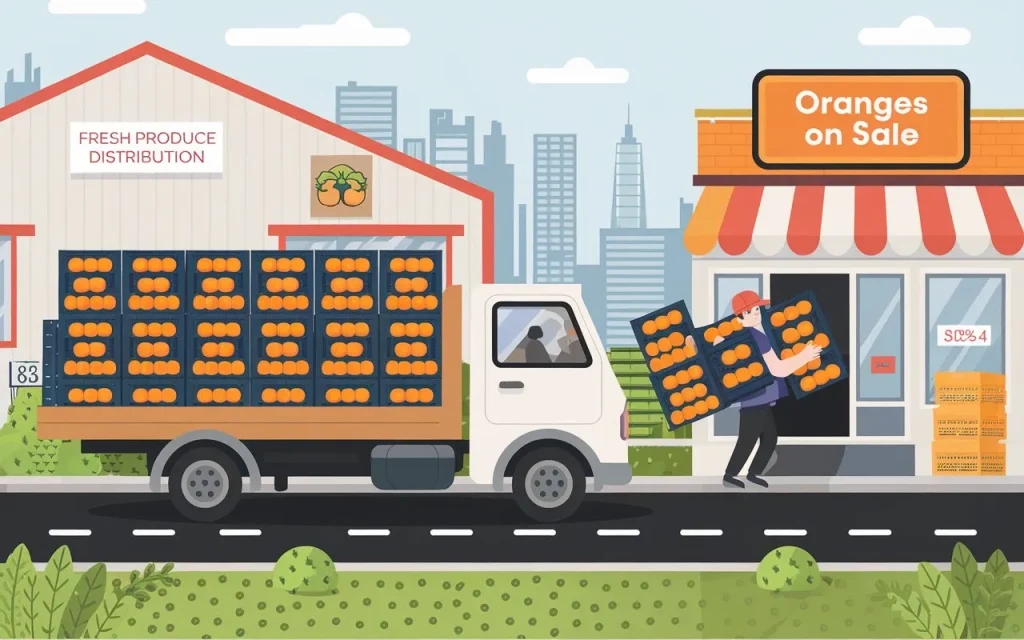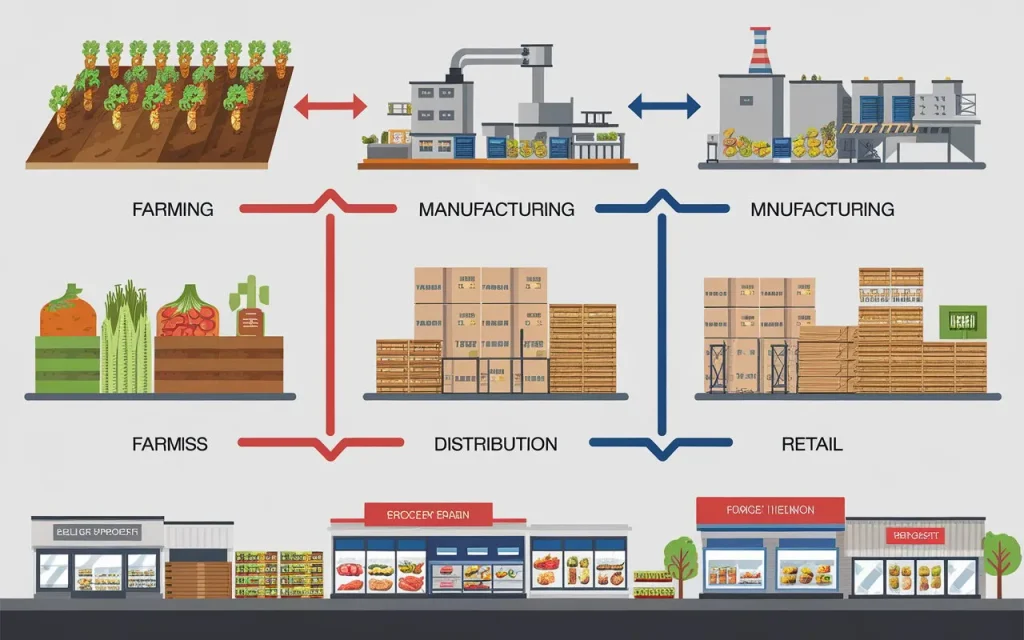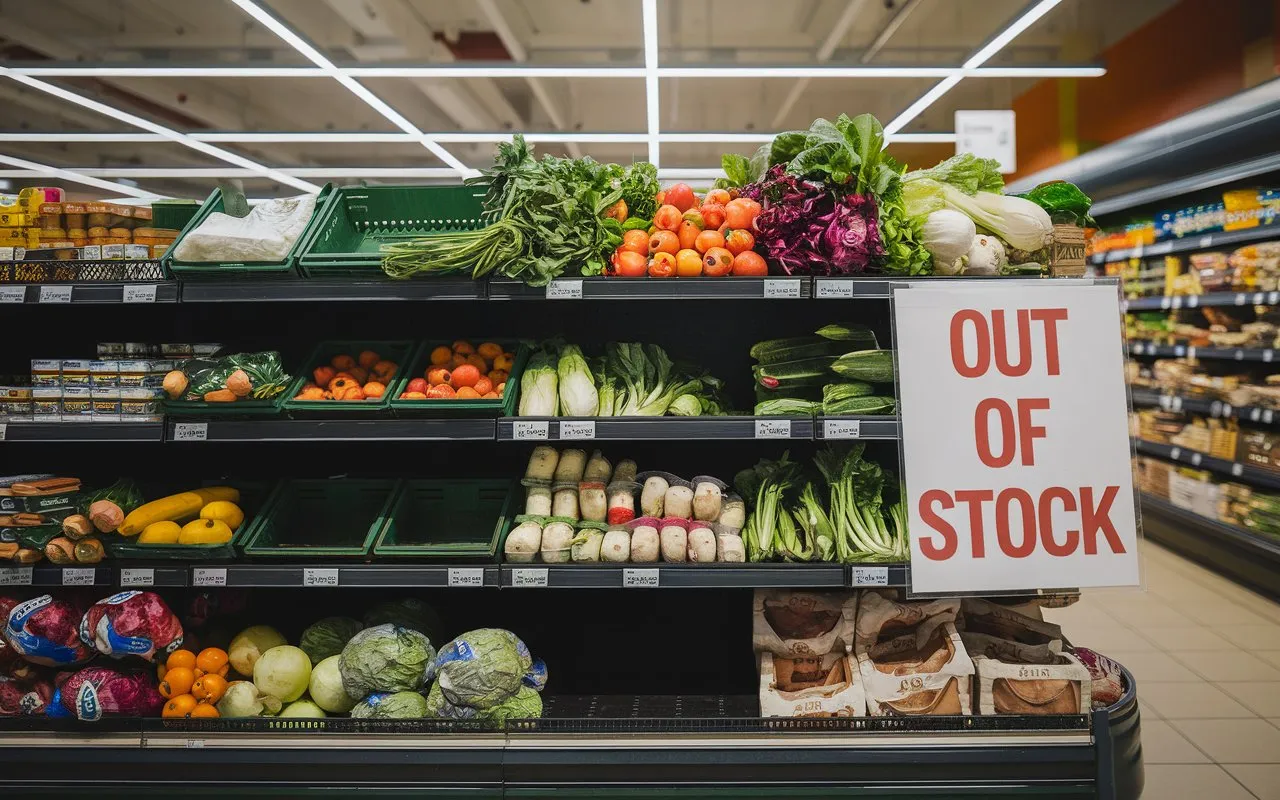Table of Contents
Supply chain challenges are central to the food industry, where food supply chain management plays a critical role in ensuring that food products move efficiently from suppliers to the grocery store shelves. The process involves careful coordination among supply chain partners, including manufacturers, distributors, and retailers. Managing inventory is crucial to maintaining food safety and avoiding food waste at each stage of the food supply chain. Advanced technologies such as machine learning help businesses optimize their operations by predicting demand and improving inventory management to prevent stockouts or overproduction. Given the global Supply Chain Management on Food Market, these innovations are vital for customer satisfaction.
In today’s complex market, effective supply chain management helps food companies navigate challenges such as shelf life and quality control while ensuring the safe transportation of finished products to consumers. Cloud-based software allows for real-time tracking of supply chain operations, enabling businesses to optimize inventory levels and improve communication with supply chain partners. By addressing these food supply challenges, companies can reduce waste and boost customer satisfaction, ensuring their position in an increasingly competitive market.
A Special Look at Key Challenges

In the food industry, the Supply Chain Management on Food Market is highly complex, involving multiple stages from production to distribution. One of the significant supply chain challenges is ensuring food safety throughout these stages, as food products are highly perishable and prone to contamination. Proper handling during storage and transportation is essential to prevent the spread of pathogens and ensure that food remains safe for consumption. This involves rigorous quality control checks and maintaining clean equipment across the entire chain. With food companies facing pressures like long-distance transportation and tight schedules, food waste and spoilage are always risks.
One way to manage these challenges is through machine learning and predictive analytics, which help companies optimize inventory management by forecasting demand and reducing overstock or understock situations. Moreover, supply chain partners must work closely to minimize delays and disruptions. By keeping all parties aligned and informed, supply chain operations can run more efficiently, ensuring that finished products reach consumers without compromising quality or safety.
Why Supply Chain Management on Food Market Is Essential

In the global food supply chain, ensuring the smooth movement of food from farm to grocery store is vital. Effective supply chain management allows food companies to optimize inventory levels, manage resources effectively, and reduce food waste. One of the key benefits of modern Supply Chain Management on Food Market tools is the ability to forecast and plan more accurately. With machine learning and advanced software, businesses can predict demand, manage inventory, and ensure timely delivery of finished products.
Also Read: Palletizing for Fragile Items: The Secrets to Damage-Free Shipping
Ensuring that food products maintain quality throughout their journey is crucial to customer satisfaction. Managing the shelf life of food is particularly challenging due to the nature of perishable goods, which makes supply chain operations complex. By maintaining strong communication with supply chain partners and using technology to track shipments in real-time, food companies can minimize disruptions, prevent spoilage, and ensure that customers receive fresh and safe products.
Common Issues with Supply Chain Management on Food Market

The challenges in food supply management often revolve around the complexity of handling perishable goods, ensuring food safety, and maintaining a balance between supply and demand. One of the most significant risks food companies face is contamination during transportation or storage, which can lead to foodborne illnesses and recalls. The global food supply chain adds to this complexity with differing regulations, cross-border shipments, and climates. Supply chain partners must react quickly to avoid stockouts or excess food waste in unexpected events like pandemics or natural disasters.
Companies that rely on effective supply chain management use technologies like machine learning to better predict consumer demand and minimize risks like overstocking, spoilage or recalls. Supply chain operations continuously evolve to meet environmental and sustainability goals as businesses strive to reduce their carbon footprint by optimizing transportation and storage methods.
The Role of Supply Chain Management Software
Modern supply chain management software is essential in helping food companies manage the many moving parts of the supply chain. These tools provide real-time visibility into every stage of the food supply chain, allowing businesses to monitor inventory management, supply chain operations, and transportation processes. Solutions like Inecta Food ERP help companies optimize inventory levels, reduce food waste, and ensure that finished products meet quality standards.
These platforms enhance communication and collaboration between supply chain partners by offering cloud-based access to critical data. Companies can now monitor supplier performance, track real-time deliveries, and ensure food products are handled safely throughout the supply chain. This results in better risk management, fewer delays, and improved customer satisfaction—all while maintaining high standards in a competitive market.
Closing Thoughts
Supply chain challenges are becoming more complex as the global food supply chain grows and consumer demands increase. Businesses must focus on effective supply chain management to ensure that food products are safe, high-quality, and timely delivered. With the help of machine learning and inventory management software, food companies can predict demand, avoid disruptions, and maintain customer trust.
By collaborating closely with supply chain partners, food businesses can reduce food waste, ensure food safety, and optimize their supply chain operations. The ability to respond quickly to market changes and maintain high standards is essential for success in the modern food industry, and companies that invest in the right tools and strategies will continue to thrive.
FAQs:
What is supply chain management in the food market?
Supply chain management in the food market involves overseeing the entire process, from food production to distribution, ensuring efficiency and safety.
Why is supply chain management important for the food market?
It ensures food quality, reduces waste, and guarantees timely delivery, which helps maintain product freshness and customer satisfaction.
How does technology impact food supply chains?
Technology enhances food supply chains by improving tracking, optimizing inventory management, and increasing efficiency with real-time data.

